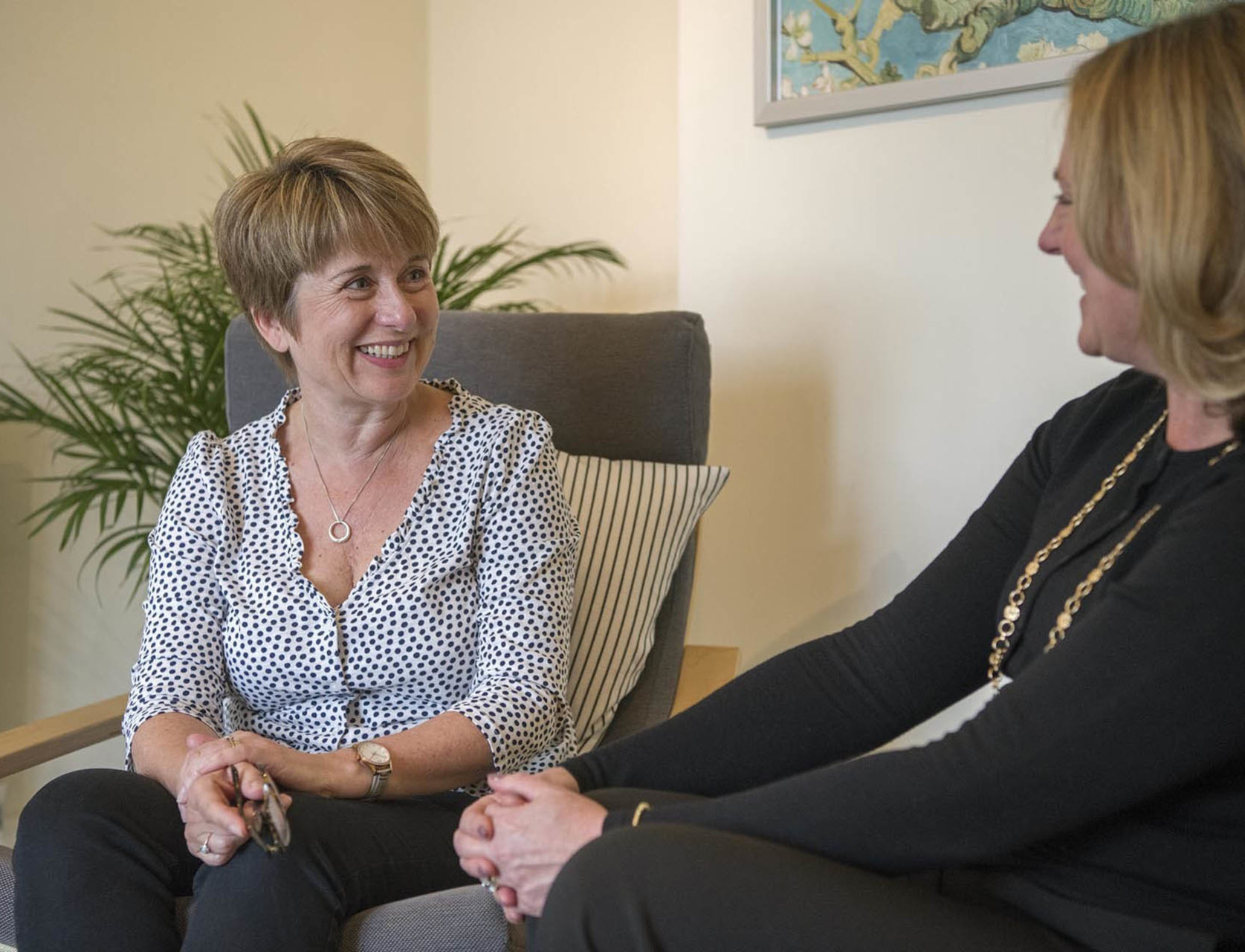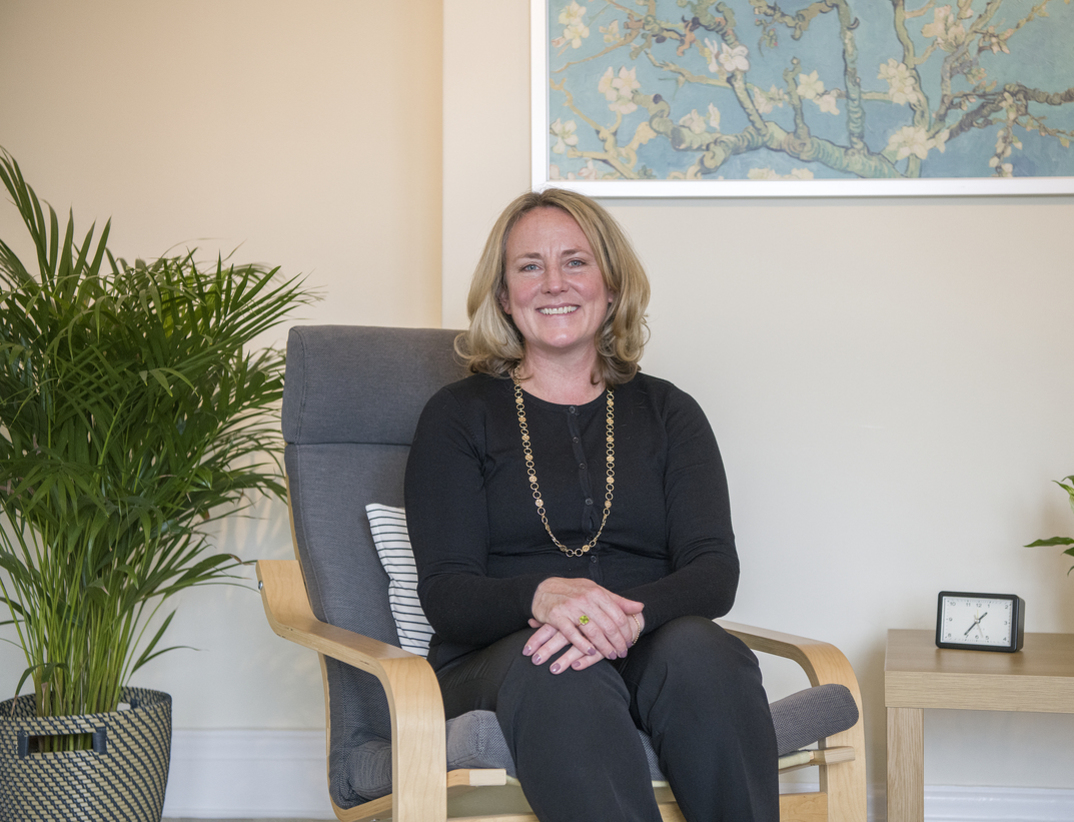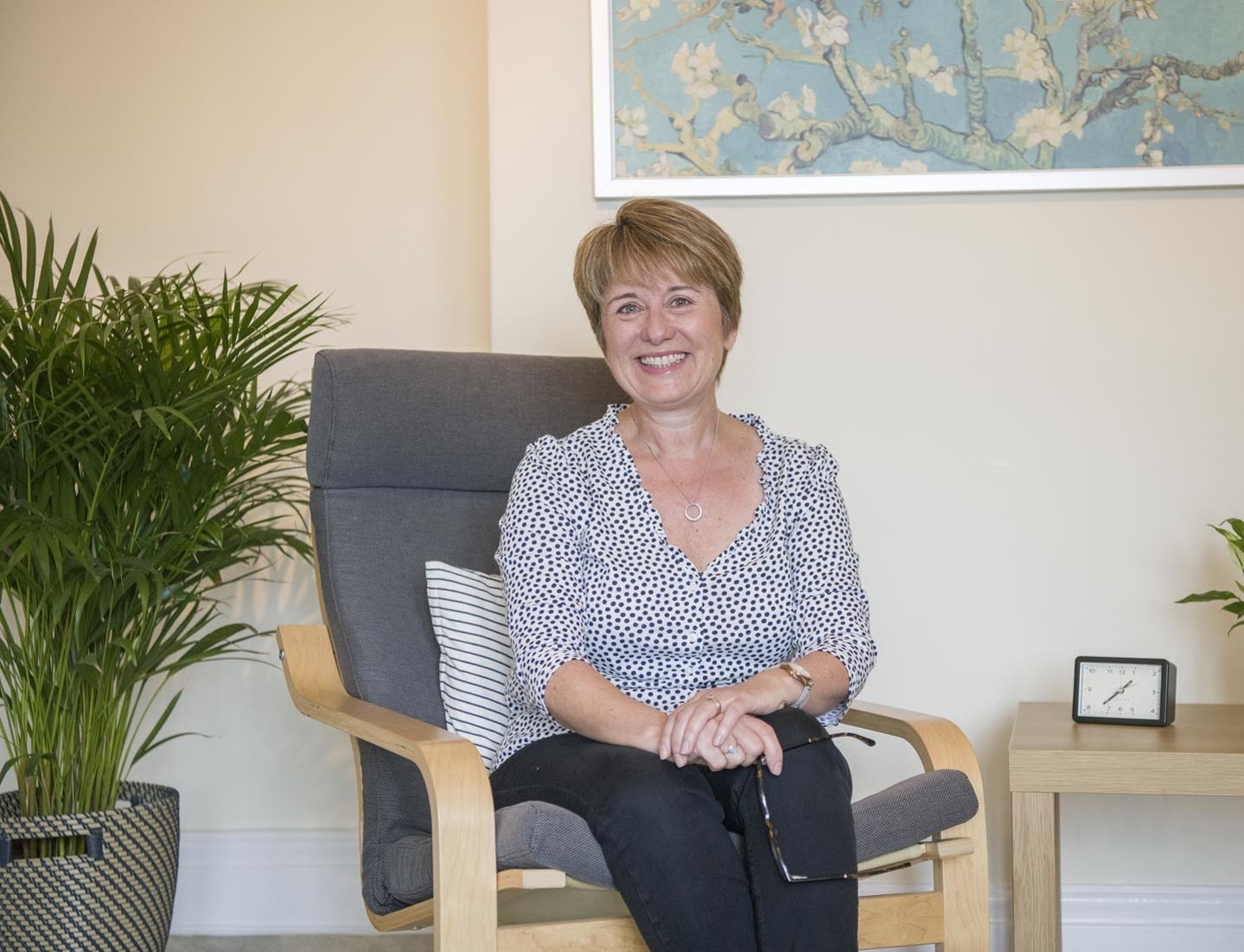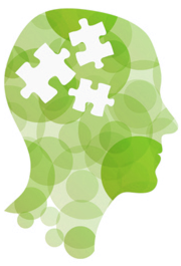What is CBT?
CBT is an evidence based psychotherapy that offers effective ways of change. It explores the relationship between our thinking, our behaviours and our emotions and helps us understand what maintains a problem. CBT is recommended by NICE for a range of anxiety and depressive conditions.
CBT enables people to develop the knowledge and skills needed to manage their own difficulties and to become their own therapists.
CBT is a collaborative process with client and therapist working closely together modifying unhelpful thoughts and behaviours to bring about emotional change. As we progress through therapy you will develop a repertoire of strategies that will help you to overcome the problem and feel more in control of it.
What to expect during CBT
Sessions are normally weekly and will last 50 minutes. It is difficult to be precise about how many sessions are required as it depends on each individual and their therapy goals; however a rough guide would suggest between 5 and 20 sessions.
In between session work is a necessary ingredient for the success of CBT. During our sessions we will work out what might be maintaining the problem and what would happen if we do things another way. From this shared understanding we then set up a practical way of trying something different which becomes a task to practise.
The aim of CBT is for you to become your own therapist. By the time we have finished therapy you will be equipped with skills to help you deal effectively with the ups and downs of daily life.
Compassion Focused Therapy and Mindfulness
Compassion Focused Therapy (CFT) is a therapy designed to help those who suffer with high levels of self-criticism and shame. In a world that can often leave us feeling overwhelmed CFT helps us learn how to be gentle and more friendly towards ourselves. It enables us to feel safe and capable when we feel at our most vulnerable.
Based on the work of Professor Paul Gilbert, CFT helps us develop emotional resources to feel soothed, calmer and more content. If we can learn how to be warm and supportive towards ourselves, rather than blaming and undermining, then we are far better equipped to deal with the difficulties we experience in daily life.
Compassion Focused Therapy is suitable for anyone who struggles with the following:
• feelings of shame
• a persistent self-critic
• difficulty feeling compassion towards oneself
• a history of physical and emotional abuse including neglect and bullying
• feeling ‘safeness’ so that we have courage to explore and address the things we find difficult
• anxiety and panic because life feels too threatening
• trusting themselves or others
For us to be able to work with our thoughts and emotions we need to notice them. Mindfulness helps us develop skills to be present in the here and now; to notice what it is we are thinking; what our emotions are and where we are feeling those emotions within our bodies. In learning to pay attention non-judgementally to our thoughts and feelings we become more able to manage them.
Mindfulness is not about trying to attain a certain state or learning how to relax. It is more about developing an approach that enables us to respond to life rather than react to it, even in the face of adversity.
If you are curious about CFT or Mindfulness and would like to know how it might help, then please contact us.






